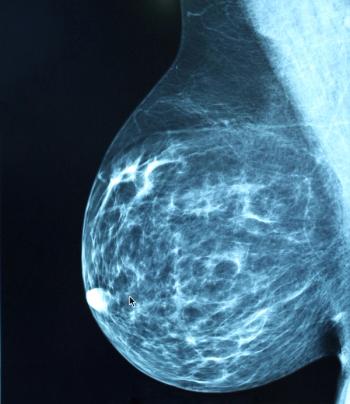
Oncology NEWS International
- Oncology NEWS International Vol 15 No 9
- Volume 15
- Issue 9
Proposed Medicare OPPS Rule Draws Fire for Its 'Inadequate Reimbursement'
Under a proposed rule covering Medicare payments for outpatient services, hospitals would receive $32.5 billion in calendar year 2007, which includes a 3.4% inflation update over the 2006 payment rates of the Outpatient Prospective Payment System (OPPS), according to the Centers for Medicare & Medicaid Services (CMS).
WASHINGTONUnder a proposed rule covering Medicare payments for outpatient services, hospitals would receive $32.5 billion in calendar year 2007, which includes a 3.4% inflation update over the 2006 payment rates of the Outpatient Prospective Payment System (OPPS), according to the Centers for Medicare & Medicaid Services (CMS).
After accounting for other factors that affect the OPPS payment levels, CMS projected that the average overall increase in Medicare payments to hospital outpatient departments would be 3.0% in 2007. However, because of the anticipated growth in volume and the intensity of services, CMS said OPPS's total expenditures next year would be about 9.2% higher than those estimated for 2006.
The end result of instituting the proposed rule would be hospital outpatient rates that "are significantly reduced from the current rates," according to the Association of Community Cancer Centers (ACCC). It cited as one example a proposed change in the payment rate for the acquisition and overhead costs of certain separately payable drugs and biologicals. The current rate is the manufacturer's average sales price (ASP) plus 6%. The proposed rule would reduce that rate to ASP plus 5%.
Reporting Quality Measures
The proposed rule would tie payment rate increases to the reporting of quality measures, beginning in 2007. Currently, OPPS payments increase with the number and intensity of services without regard to the quality of care or patient health. Hospitals that report quality measures for purposes of the update in the inpatient prospective payment system (IPPS) would receive the full 3.4% inflation update on the outpatient payments as well, CMS explained. "Those hospitals required to report quality measures for inpatient services in order to receive the full IPPS update, but fail to do so, would receive the OPPS update minus 2.0 percentage points," CMS said.
If the reporting portion of the proposed rule becomes part of the final version, hospitals would be required, for the first time, to report consistent measures of patients' satisfaction with their care to receive a full IPPS updated payment. Hospitals would use a survey instrument, developed jointly by CMS and the Agency for Healthcare Research and Quality, which is designed to collect patients' perspectives on the care they receive while hospitalized. "Also for the first time, hospitals would report risk-adjusted outcome measures to receive the full update," CMS said.
The proposed rule also includes procedures aimed at improving the accuracy of payments to hospital outpatient clinics, emergency departments, and critical care services. It would increase the number of payment levels from three to five. CMS would set payment rates on the basis of historical claims data. Under this plan, the maximum payment for clinic visits would rise from $92 to $133 and that for emergency department visits would increase from $244 to $345.
Drug Administration
The proposed rule would enable the CMS to increase payments to hospitals to cover the costs associated with administering drugs to Medicare recipients in an outpatient setting.
Under its current rule, the agency has six ambulatory payment classifications (APCs) for most drug administration services, and hospitals receive the same payment for each drug infusion regardless of how long it takes. The new rule would provide payment for the first hour of infusion and then pay additional money for each hour of treatment after the initial hour.
Currently, the Medicare law requires CMS to pay separately for drugs and biologicals that cost $50 or more per administration and to bundle payment for those costing less than $50 into payments for the procedures with which they are associated. The exception to this rule is payment for certain anti-emetic drugs used by cancer patients to counter treatment-associated side effects. CMS's proposed rule would pay separately for drugsincluding the anti-emeticsbiologicals, and radiopharmaceuticals costing $55 or more per day. Coverage for drugs costing less than $55 would continue as part of the reimbursement for the patient's procedure.
CMS would continue to pay separately for brachytherapy sources and base its rates on the median costs of each source. Payment would be made per unit source rather than per day "to recognize the high variability of treatment costs," CMS said.
Multiple Imaging Procedures
CMS is also proposing changes in payments for multiple imaging procedures. In 2005, CMS issued a final regulation stating that when multiple imaging procedures of contiguous body areas are performed on the same day, the technical component of second and subsequent procedures would be paid at a reduced rate. CMS originally planned to phase in these reductions so that subsequent procedures would be paid at 75% of the fee schedule amount in 2006 and 50% in 2007. Now CMS has proposed to hold the payment reductions for multiple imaging services at 75% of the fee schedule amount in 2007. The proposed reduction in payments for multiple imaging procedures would not apply to the physician's interpretation of multiple imaging procedures.
Finally, CMS has proposed a 5.1% reduction in the Medicare physician fee schedule conversion factor for 2007, based on the statutorily mandated Sustainable Growth Rate (SGR) formula. Congress is considering overriding the anticipated 5.1% across-the-board cut, since it has passed stop-gap measures in the past to prevent similar cuts.
The proposed rule is open for public comment until October 10, and CMS will publish its final rule later this fall. For more information, please go to
Articles in this issue
over 19 years ago
Exjade Gains Approval in EUover 19 years ago
President's Cancer Panel Assesses Progress in Two Areasover 19 years ago
Cognitive Rx Reduces Depression in Breast Ca Ptsover 19 years ago
Nurses Develop Evidence-Based Guidelines for Mucositisover 19 years ago
Anastrozole Therapy for Breast Cancer Affects Bone Healthover 19 years ago
Is Demand for Trial Subjects Outpacing Supply?over 19 years ago
Postchemo Disappearance of Liver Mets Doesn't Mean Cureover 19 years ago
Aromasin-Related Bone Loss Affected by Vitamin D Levelsover 19 years ago
Melanoma Mets Regress After Gene TherapyNewsletter
Stay up to date on recent advances in the multidisciplinary approach to cancer.



































